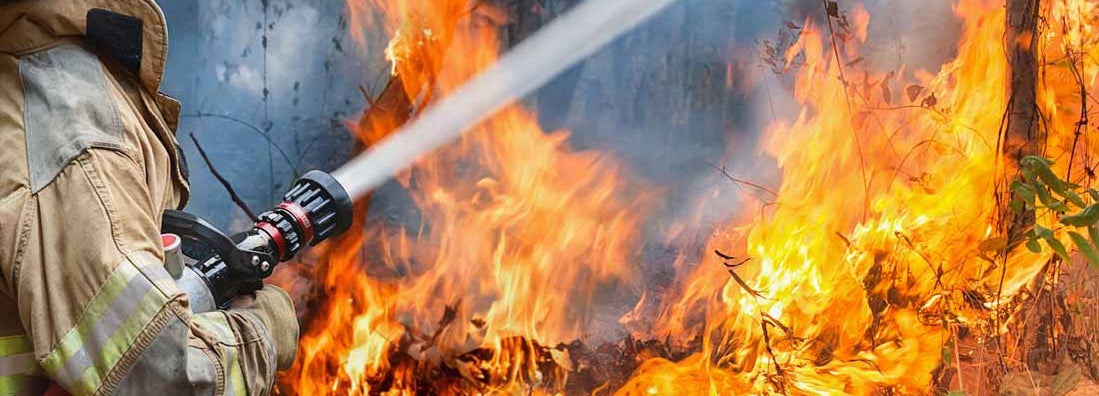Ohio Fire Insurance
Find the right fire insurance policy for you.

Ohio had 13.9 fire fatalities per one million people in recent years, which is higher than the fire fatality rate of half of the states in the nation. Ninety-two percent of all civilian structure fire deaths result from house fires, according to the National Fire Protection Agency. How much damage does a house fire cause? The average cost of fire damage in a house without sprinklers is over $45,000 per house fire. Fire damage is covered by a standard homeowners policy, but you may need extra Ohio fire insurance for specific high-value items. An independent insurance agent can review your policy with you, and show you possible gaps in coverage. Contact a local agent now for a free review or to get Ohio fire insurance quotes.
House Fire Facts
- Cooking is the leading cause of house fires.
- 42% of home fires start in the kitchen.
- 7% of home fires start in bedrooms.
- 4% of home fires start in the living room, family room, or den.
Is Ohio Fire Insurance Necessary?
Fire insurance is a necessary part of your home insurance plan, as fires are the leading cause of home destruction. If you have a comprehensive homeowners policy, fire coverage will be included. However, if your property is insured for actual cash value, your fire coverage may be less than what is needed to replace your damaged structures and items. You can insure your property with replacement value coverage instead. This covers the cost of rebuilding a house similar to your old one after a fire and provides funds to replace damaged appliances, clothing, and furniture with new items.
What Does Fire Insurance Cover?
Your homeowners policy provides the following coverage options to protect your home from fire (check your policy to make sure you understand any exclusions):
- Covers the structure of your home
- Covers additional structures on your property, including sheds, garages, and outbuildings
- Insures the contents, or your personal belongings, in each of the structures, including furniture, appliances, electronics, clothes, etc.
- Provides for living expenses if a fire displaces you and your family for a period of time, including rent or hotel expenses
Are There Exclusions?
An exclusion is an item that is not covered by the policy. It can be a certain item or a cause of the fire. For example, one of the causes excluded from fire insurance policies is war, but terrorism is normally covered. Another exclusion is fires intentionally set by your family members, but arson is typically covered. Wildfire or forest fire usually requires separate coverage.
Also, there are some exceptions the insurer may make depending on events surrounding the fire. For example, if you don't have smoke alarms or neglect to call the fire department, some insurance companies may decline your claim. In addition, you may have certain high-value items, such as jewelry, collectibles or fine art that may require a separate fire insurance policy, as their value can exceed coverage limits.
Protect Your Car from Garage Fires
Many people wonder what happens if their car is damaged by a house fire. Is it covered by a homeowners policy if it is in the garage? The answer is no, but it may be covered by your car insurance policy. If you have car insurance that includes "other than collision" or comprehensive coverage, your car is insured against fire damage. It is a good idea to make sure your deductible is set at an amount you can afford, and that you are covered for the replacement cost of your car, if possible. Because of the many expenses surrounding a house fire, it can be especially difficult to come up with funds for a new car, if you lack adequate coverage.
Get OH Fire Insurance Quotes Now
A local agent can review your current homeowner policy to make sure you are adequately covered in the event of a house fire. Because these agents are independent, they can access many insurance companies, and ensure that you do not overpay for your coverage.
